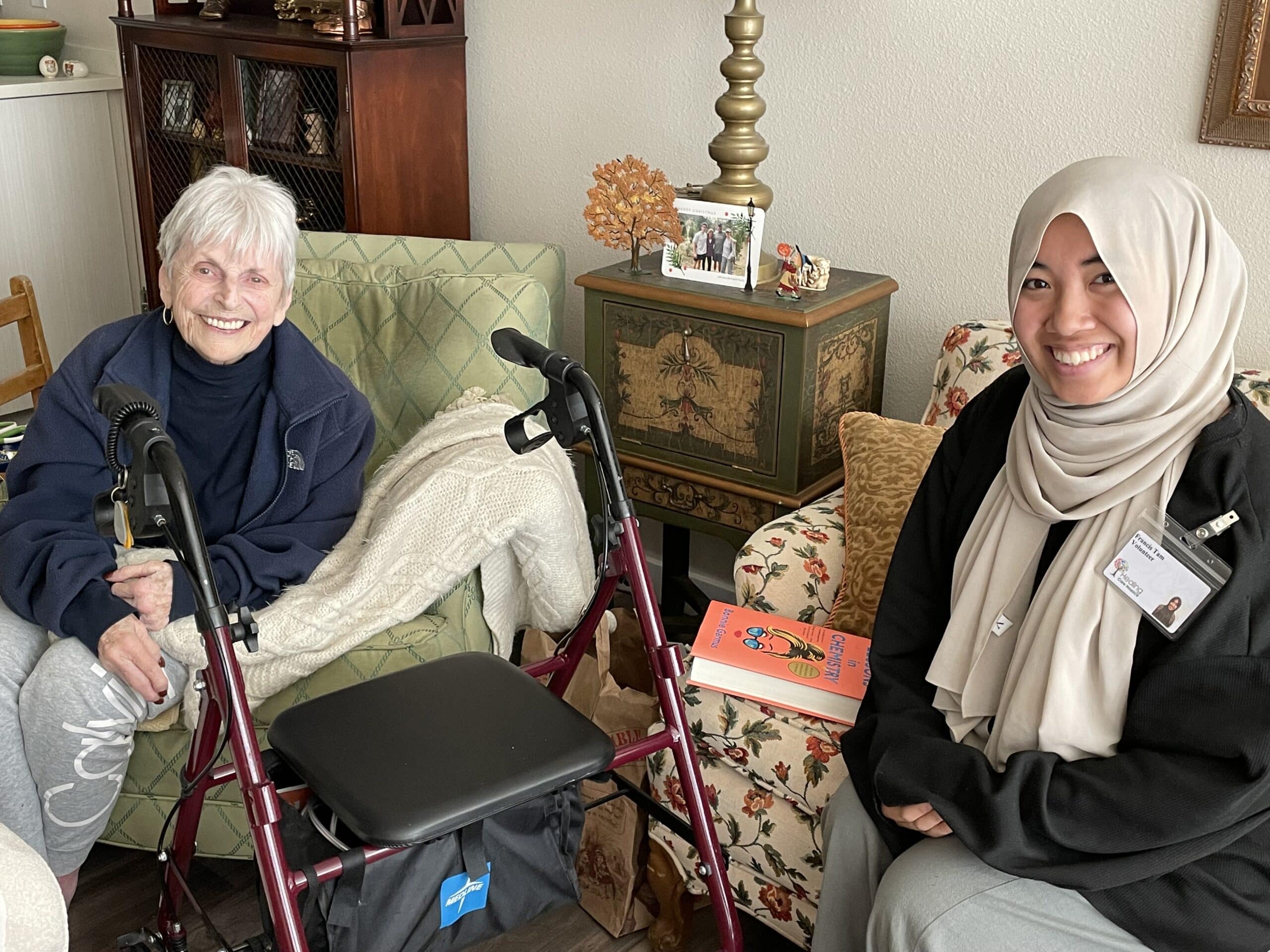A Day in the Life of a Social Worker: Monica Hour, MSW
Medical Professional

Meet Monica Hour, a Healing Care Hospice social worker, and follow along to get a glimpse of what a day looks like in the life of one of our social workers.
.
What Does a Hospice Social Worker Do?
Our social workers primarily provide patients and their families with education on hospice philosophy, emotional support, and community resources like In-Home Supportive Services (IHSS) and mental health guidance.
The hospice social worker job description and role extends to helping with problem-solving, financial issues, and planning, such as assisting with mortuary arrangements, as well as providing bereavement support to the family after a patient passes.
Social workers are the bridge between the clinical management team and the patient and their family; they play a vital role in advocating for the patient as well as keeping the patient’s care team informed and accountable in maintaining a schedule, doing follow ups, and managing the patient’s overall care.

Monica visits her patient with dementia at his board and care.
An essential part of a social worker’s daily tasks is reviewing the registered nurse’s triage notes at the beginning of their shift. These notes may provide important updates about the patients under a social worker’s care, such as if a patient suffered a fall overnight or if a family member is in distress. Knowing these details about the patient and/or the family’s condition allows social workers to plan accordingly for their visit.
Nevertheless, social workers are encouraged to be cognizant to expect the unexpected.
A hospice social worker must be prepared to meet with patients and their families in various settings, such as board and care, assisted living facilities, skilled nursing facilities, and even at a patient’s home. Oftentimes, social workers are called in during times of crisis and must be equipped with the tools to provide the best care possible.
Once a patient comes under our care, a social worker will do an in-person visit with the patient and their family to complete a thorough psychosocial needs-assessment. Afterwards, social workers complete ongoing visits for emotional support; provide community resources and ongoing education on hospice philosophy; assist with end-of-life arrangements; and help with any other psychosocial needs that may arise.

Monica provides bereavement support to a deceased patient’s family at their home.
At the end of every visit, social workers carefully input their notes into each patient’s individual file. Communication is key. Therefore, social workers should be comfortable being in clear and consistent communication with the patient’s care team and the patient/family. Before the end of their shift, social workers must make sure to complete any pending tasks such as following up with any requests made at the beginning of their shift.
Social workers mainly work in the field; however, they also attend in-office meetings. Every week or every other week, depending on their assigned group, social workers will meet with their Interdisciplinary Group. This group consists of clinical managers, registered nurses, chaplains, coordinators, and other social workers. Additionally, social workers will meet monthly with their fellow social workers and the Manager of Social Services. These two settings are ideal for getting questions and concerns addressed by the whole team as well as for trainings, educational and field updates, and sharing resources. While monthly meetings provide a space to clear up uncertainties, social workers are also encouraged to reach out to the Manager of Social Services on a case-by-case basis for more immediate needs.
Find out if being a hospice social worker is your calling by visiting our Openings page under the Join Our Team tab and applying today!
Written by: V Perera
Contributions by: Monica Hour, MSW, and Leylan Avalos, MSW
About The Author

Contributions by: Monica Hour, MSW, and Leylan Avalos, MSW
About The Author

Contributions by: Monica Hour, MSW, and Leylan Avalos, MSW



